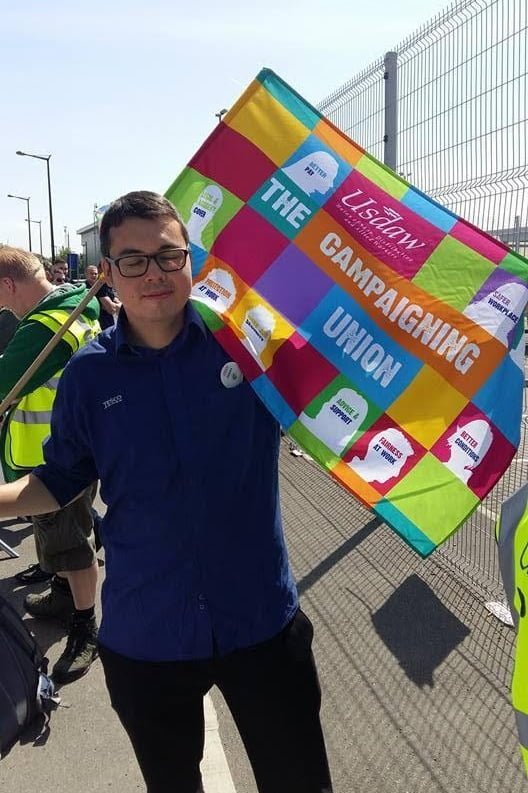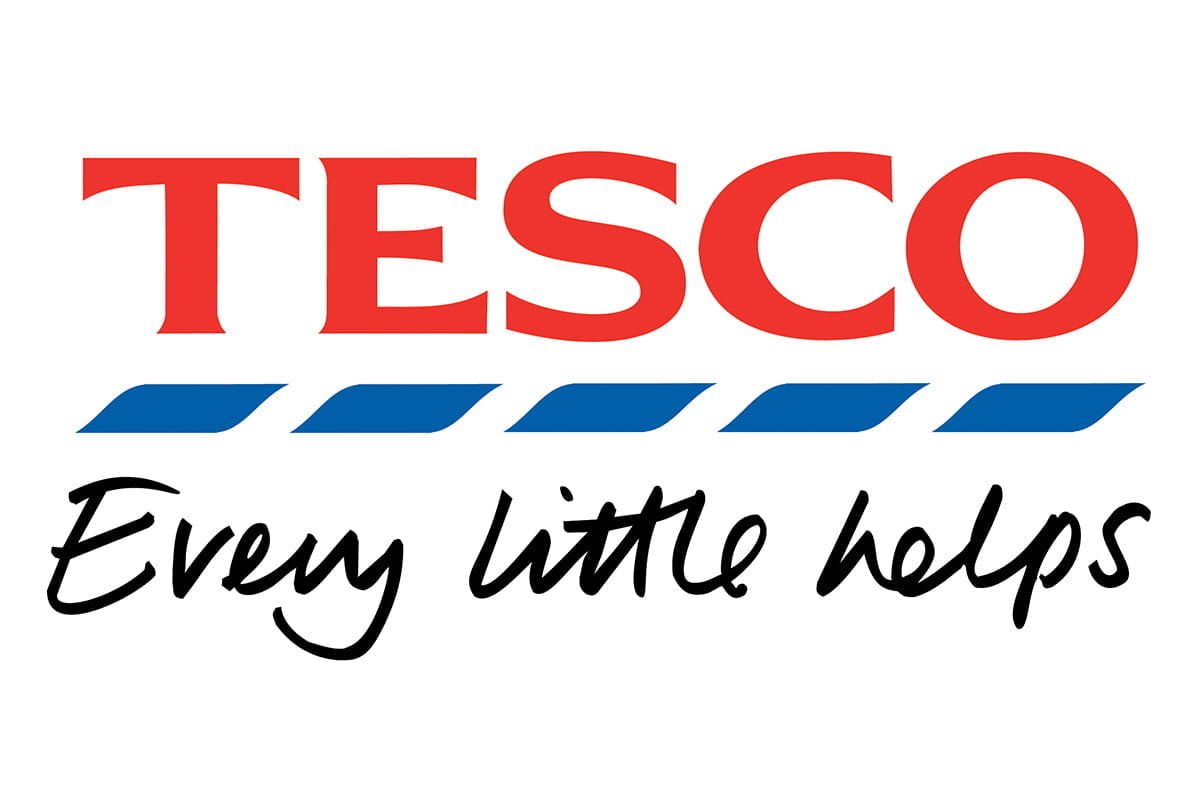Low-paid workers at Tesco are beginning to fight back against the bosses.
Staff at the Dagenham Tesco distribution centre have been on strike. This is a big step forward for USDAW union members at Tesco, who rarely see strike action. The main union representative and organiser in this dispute told me that, in his 29 years as a Tesco worker, he could not remember strike action within the company.
Tesco workers have been forced into taking action by the circumstances confronting them. Staff at this distribution centre have been leaving in droves, with over 50 people leaving in the month of April alone. Staff are not able to afford to live in the area near the workplace, since wages are so low. They are receiving under £10 an hour; the average annual wage for a full-time Tesco operative in this part of London is therefore only around £18,200. Tesco, on the other hand, have made billions in profit this year, spending millions on this site alone to minimise the disruption of strike action.
Strike breaking fails
 The distribution centre stores a significant amount of the daily stock that is delivered to supermarkets in east London and the south east. In advance of the strike, most of the stock had to be moved to neighbouring distribution centres for it to be packed on cages ready to be delivered to supermarkets.
The distribution centre stores a significant amount of the daily stock that is delivered to supermarkets in east London and the south east. In advance of the strike, most of the stock had to be moved to neighbouring distribution centres for it to be packed on cages ready to be delivered to supermarkets.
On the day of action, the disruption for the company was massive, with no ‘morning’ and ‘fresh’ goods delivered. Usually these are the main goods delivered for the day. But barely anything was left in the centre on the strike day, having been transported elsewhere already. A report from someone who went into the distribution centre said that the warehouse was so empty, you could play football on the shop floor.
Tesco piled lots of cash into crushing the effectiveness of this industrial action. They sent leaflets out to workers to dissuade them from partaking and hired double-decker buses to bring in strikebreakers. It was good to see how empty these buses were; most of the time there was nobody on board.
These methods of breaking the strike didn’t work. As a result, this single day of strike action forced Tesco into negotiations. Up until now, talks hadn’t been conducted between Tesco management and the union, despite the demand for better pay being brought up by union representatives over a year ago. The bosses are now worries, and clearly don’t want this spreading to their other distribution sites, or potentially going even further and effecting their retail operations.
Unfortunately, however, there were lots of lorry drivers that drove through the picket line. They were also meant to be on strike as part of the distribution team, yet most drove through. A variety of spurious arguments were used to justify this, and those on the picket line were clearly angry. The union leadership needs to make the case for united action across the board, in order to win a better deal for everyone.
In partnership with the bosses
One thing that made it easier for Tesco staff at this distribution centre to go on strike than at other outlets is that we aren’t part of the Tesco-USDAW partnership agreement, which USDAW signed with Tesco in 1997. This site is considered a ‘stand-alone’ Tesco workplace. This means the decision to take action didn’t have to go through the same bureaucratic channels that exist elsewhere in order for strike action to take place.
The agreement, which includes all of the retail sector within Tesco, was signed on the main premise that the union would be able to recruit more members with the cooperation of the company. In reality, the agreement acts as a barrier to action, bringing into question the independence of USDAW from the company. The main reason that Tesco proposed this agreement was to stop union activity. So far, it has succeeded in stopping industrial action entirely.
USDAW is one of the biggest unions in the country, mainly representing low-paid workers. But most other unions don’t have any agreement of the kind that exists between Tesco and USDAW. The union should abandon the partnership agreement, in order to preserve its integrity as a union and guarantee its independence from the bosses.
So many of my colleagues – including union members and non-members – complain that “USDAW doesn’t do anything”. From our viewpoint as Tesco employees, USDAW are a ‘company union’. Union members are suspicious of shop stewards, even though they voluntarily put in so much hard work. There are no benefits from the partnership agreement for union reps or members alike.
We need a fighting union
 The retail and distribution industry will come under enormous pressure over the next decade, with widespread redundancies as technology and other wider changes transform these sectors.
The retail and distribution industry will come under enormous pressure over the next decade, with widespread redundancies as technology and other wider changes transform these sectors.
Tesco is ready to put in service a ‘virtual store’ system that will immeasurably affect the checkout staff of its stores. There won’t be any checkout staff once this is fully rolled out. Customers will shop without needing to checkout. Computer-controlled lorries are being tested by the government, meaning that in the near future there won’t be lorry drivers. The company will also soon be closing its Tesco Direct service, meaning 500 jobs are already set to go.
For these reasons, we need a fighting union that is seen to be totally independent of the company. USDAW needs to ditch the partnership agreement with Tesco and start fighting like our colleagues in Dagenham have done.






